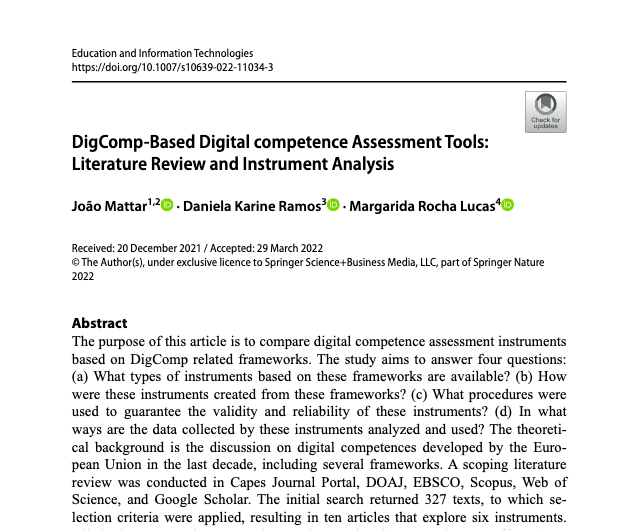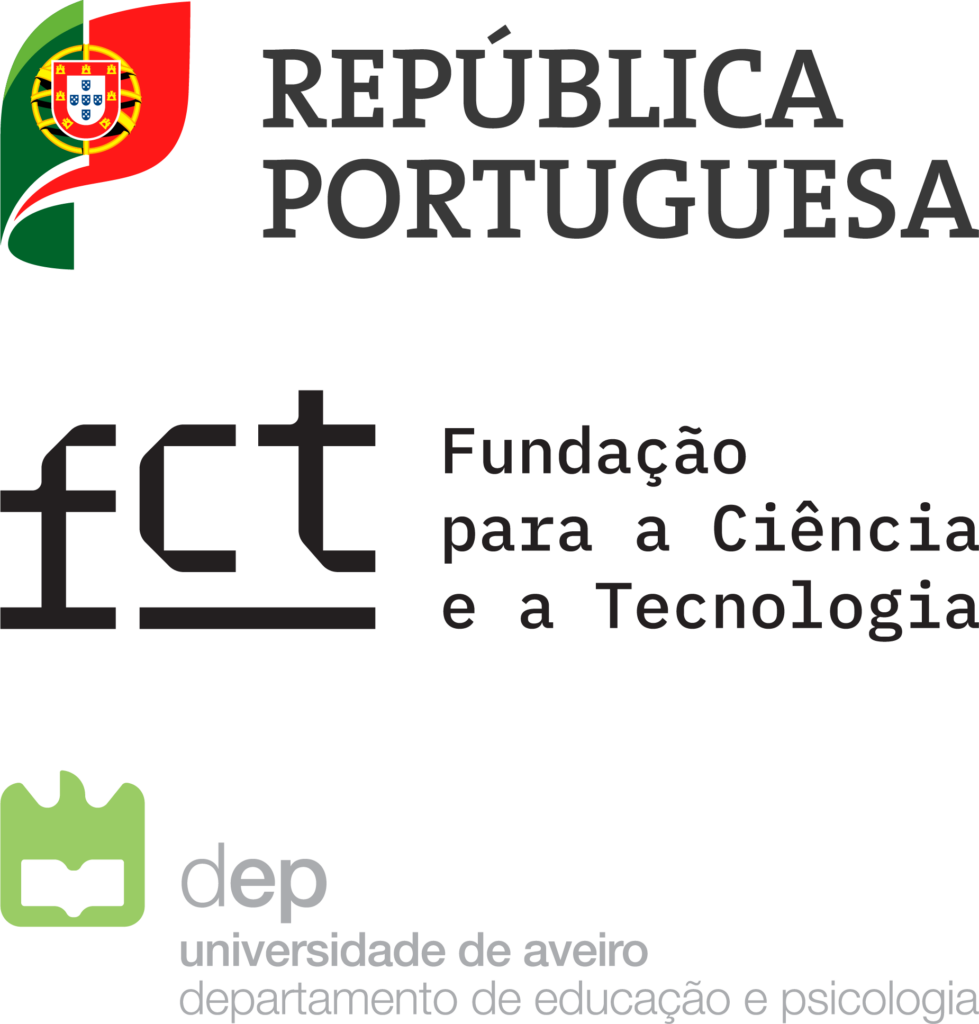João Mattar, Daniela Karine Ramos & Margarida Rocha Lucas (CIDTFF) | Education and Information Technologies (2022)
Abstract:
The purpose of this article is to compare digital competence assessment instruments based on DigComp related frameworks. The study aims to answer four questions: (a) What types of instruments based on these frameworks are available? (b) How were these instruments created from these frameworks? (c) What procedures were used to guarantee the validity and reliability of these instruments? (d) In what ways are the data collected by these instruments analyzed and used? The theoretical background is the discussion on digital competences developed by the European Union in the last decade, including several frameworks. A scoping literature review was conducted in Capes Journal Portal, DOAJ, EBSCO, Scopus, Web of Science, and Google Scholar. The initial search returned 327 texts, to which selection criteria were applied, resulting in ten articles that explore six instruments. All the instruments have a section to characterize the respondents’ profiles. Some have other sections to evaluate access, frequency, contributions, and pedagogical practices related to digital technologies. The instruments are questionnaires with different designs and items, mainly self-assessment statements and closed-ended questions. The questionnaires are based on the areas and competences described by DigComp and DigCompEdu frameworks. Few procedures to guarantee the validity and reliability of the questionnaires were identified. The instruments are adopted to profile the use of technologies by students and teachers and assess their digital and professional competences. One of the main contributions of this article is the proposal of a typology for the design and items that can be used in questionnaires to assess digital competences.
– – – – –
Referência:
Mattar, J., Ramos, D. K., & Lucas, M.R. (2022) DigComp-Based Digital competence Assessment Tools: Literature Review and Instrument Analysis. Education and Information Technologies. https://doi.org/10.1007/s10639-022-11034-3





